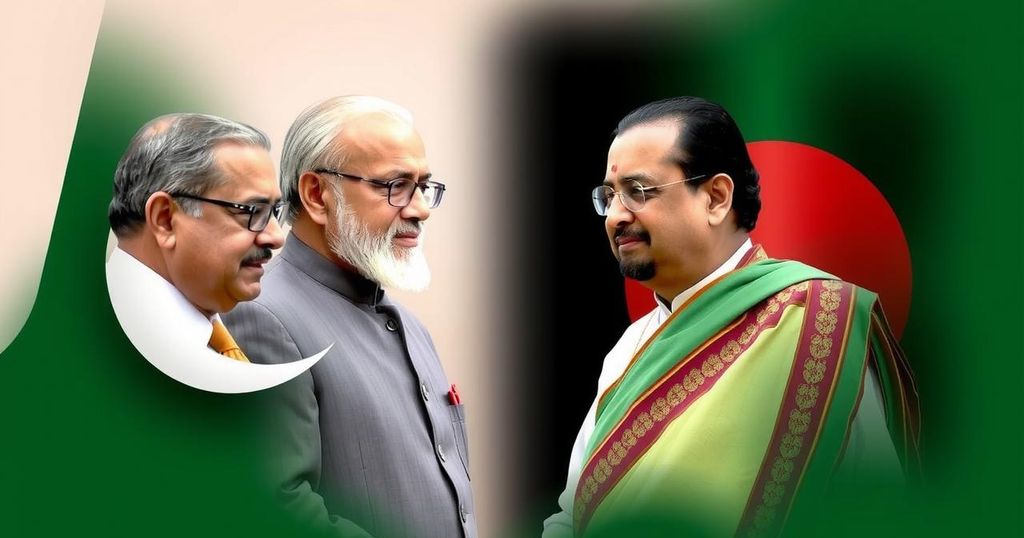Pakistan’s Foreign Minister Ishaq Dar will visit Bangladesh next month, his first trip in over a decade, signaling improved ties after a decade-long estrangement particularly under former Prime Minister Sheikh Hasina. The visit marks a significant diplomatic gesture following Hasina’s ouster and highlights recent improvements in bilateral trade and relations between the two nations.
Pakistan’s Foreign Minister Ishaq Dar is scheduled to visit Bangladesh next month, marking the first such official visit in over a decade. This development indicates a thawing of relations between Dhaka and Islamabad, particularly following the political upheaval that led to former Prime Minister Sheikh Hasina’s ousting last August. Dar announced his upcoming trip during a press conference in Islamabad, confirming that Muhammad Yunus, Bangladesh’s interim government chief adviser, has agreed to visit Pakistan on mutually decided dates.
The visit will be significant as it represents the first trip by a Pakistani foreign minister to Bangladesh since 2012, when Hina Rabbani Khar visited to invite Sheikh Hasina to the D-8 summit. Throughout Hasina’s 16-year leadership, relations between Bangladesh and Pakistan were tense, as she aligned closely with India, a country regarded as a regional ally by Bangladesh’s ruling Awami League.
Since Hasina’s ousting, however, bilateral relations have improved markedly, with renewed dialogues and exchanges occurring between the two nations. The lifting of restrictions on Pakistani exports by Bangladesh has contributed to an increase in trade, alongside the initiation of direct maritime trade routes. During his press conference, Minister Dar referred to Bangladesh as a “brother country” and pledged support from Pakistan.
Additionally, the recent abolishment of a security clearance requirement for Pakistani individuals seeking Bangladeshi visas has created potential implications for regional security dynamics. This policy change occurred shortly before a meeting between Pakistan’s High Commissioner to Bangladesh and BNP leader Khaleda Zia, indicating a shift in political relations and an opening of diplomatic channels. Moreover, these developments come amid increasing tensions between Bangladesh and India since Hasina’s removal, coupled with concerns about violence against Hindu communities under the interim leadership of Muhammad Yunus.
The political relationship between Pakistan and Bangladesh has historically been fraught with tension, particularly under Sheikh Hasina’s administration. Her government maintained a strong alignment with India, often resulting in Pakistan’s diplomatic overtures being met with resistance. The change in leadership following Hasina’s ousting has prompted both nations to reassess their diplomatic strategies, leading to improved interactions and new agreements on trade and travel. With the ongoing political changes in Bangladesh, particularly under Yunus, the dynamics continue to evolve, impacting the overall regional stability and bilateral relations.
The impending visit of Pakistan’s Foreign Minister Ishaq Dar to Bangladesh marks a pivotal moment in the rekindling of ties between the two governments. Following Sheikh Hasina’s removal from power, recent diplomatic gestures, including trade agreements and eased visa restrictions, suggest a renewed commitment to improving bilateral relations. This shift not only highlights the fluid nature of political alliances in the region but also raises questions about potential changes in the broader geopolitical landscape as both countries navigate their evolving relationship.
Original Source: www.business-standard.com






